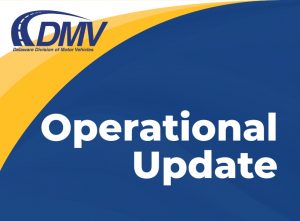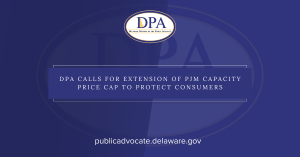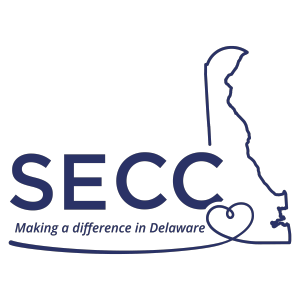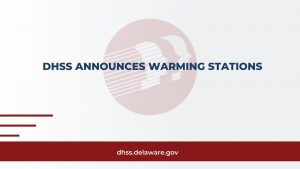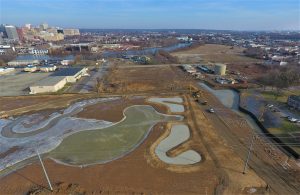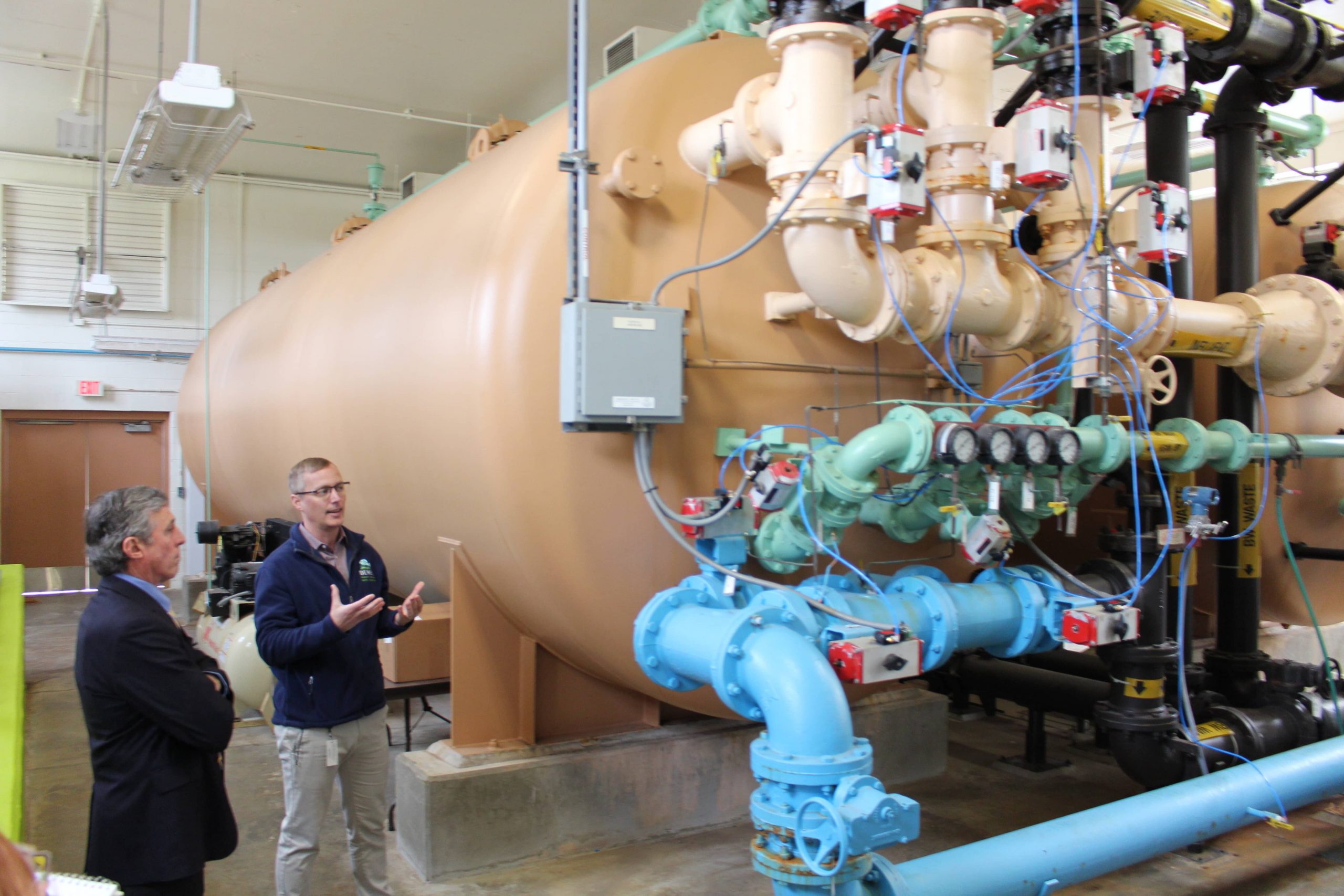
NEWARK, Del. – Governor John Carney announced Wednesday that state agencies will begin accepting applications to loan or grant money for drinking water and wastewater system improvements around the state, with capacity for historic levels of investment in water infrastructure from the federal Bipartisan Infrastructure Law and the state Clean Water Trust, created in 2021.
The Bipartisan Infrastructure Law — championed by U.S. Senator Tom Carper, U.S. Senator Chris Coons, and U.S. Congresswoman Lisa Blunt Rochester and signed by President Biden in November 2021 — is a once-in-a-generation commitment to improving roads, bridges, transit, water and wastewater systems, broadband, energy and other infrastructure areas.
Cities, towns, counties, water companies and communities are eligible to apply for the increased and more flexible funding coming from the federal government to the existing Drinking Water State Revolving Fund (DWSRF) administered by the state Division of Public Health and the Clean Water State Revolving Fund (CWSRF, which focuses on wastewater and stormwater projects) administered by the state Department of Natural Resources and Environmental Control. As directed by Congress, these existing processes will manage requests and inquiries related to this funding. The joint DWSRF/CWSRF workshop to begin the 2022 application process takes place Thursday, March 24 at 10 a.m. and pre-registration is open.
On Wednesday, Governor Carney toured a City of Newark water facility that used funding from the state Drinking Water State Revolving Fund to construct a 250,000-gallon storage tank, install a contaminant removal system, and complete plant building upgrades that will allow for additional treatment if needed in the future.
Click here to view photos from the tour.
“Delawareans deserve clean water. It’s as simple as that,” said Governor Carney. “Access to clean and safe water should be a promise we make to our residents, and we need to protect this resource for future generations. The combination of the Clean Water Trust – led by Representative Longhurst and Senator Townsend – and the new federal funding led by Senators Carper, Coons and Congresswoman Blunt Rochester, will help us deliver on the promise of clean water for all Delawareans.”
With Delaware’s $315 million for clean water and drinking water from the federal Bipartisan Infrastructure Law, more money will be available for the next five years for the types of water and wastewater projects traditionally financed by the funds, and with dedicated funding for disadvantaged communities, to address emerging contaminants such as PFAS, and to find and replace remove lead water lines or water line components. Delaware water systems are not known to have many lead water lines, but the funding can be used for a federally required inventory of systems for any lead lines and components that must be completed by October 2024, as well as for any needed replacements.
In the 2022 round of annual loans and grants, Delaware communities will have access to:
- $29 million for the general Drinking Water fund projects, such as source water protection, treatment, storage, distribution, cybersecurity and sustainable energy projects, which is almost three times as much as usual
- $16.5 million for the general Clean Water fund projects, such as wastewater treatment plant upgrades, septic elimination projects, and sewer interceptor rehabilitations, which is about twice as much as usual
- $28 million specifically for lead service drinking water line identification and, if needed, replacement, which is new dedicated funding
- $8 million for projects to address PFAS or other emerging contaminants in drinking water or wastewater systems, which is also new dedicated funding
Of the traditional project lines and the lead pipe replacement lines, 49 percent of the fund must be provided as forgivable loans or grants to communities that qualify as disadvantaged. The definition of disadvantaged varies by programs but can be updated by the state programs this year to expand the potential access. The emerging contaminant funds also have requirements for spending in disadvantaged communities.
“Clean water is critical to everything we do – from our health to our environment and to our economy – access to safe and clean water is a basic necessity,” said Lt. Governor Bethany Hall-Long, Ph.D., R.N. “Thanks to President Biden and our Congressional Delegation, these critical infrastructure funds along with the Clean Water Trust Fund will help ensure clean water for all Delaware communities, particularly the underserved. Protecting our water quality is the foundation of a stronger and healthier Delaware.”
“Planning for the future is a key strategy in responding to emerging contaminants,” said DPH Director Dr. Karyl Rattay. “DPH is thankful and pleased to support Newark and other municipalities and communities in providing clean water to residents. The infrastructure investments being made now, and that will be possible with the funds coming to Delaware, will substantially expand DPH’s reach to ensure all Delawareans have access to safe drinking water.”
“With this historic investment, we will be able to advance our goal of clean water for all Delawareans,” said Secretary Shawn M. Garvin. “Even so, addressing the water challenges of our state will not happen overnight. We have a lot of work to do – work we’ll do together – to support water quality improvement projects in communities across Delaware, particularly our overburdened and underserved communities.”
The federal funding will work in conjunction with the state’s Clean Water Trust, created in 2021 to plan and deploy water investments from multiple funding sources. Because of the five-year increase in infrastructure funding from the federal government, the state water loan programs are urging potential applicants to consider the next several years of improvements, and to potentially apply for planning grants this year that could turn into infrastructure projects that need to be funded in future years.
The Bipartisan Infrastructure Law’s provisions include the Drinking Water and Wastewater Infrastructure Act that Senator Carper authored in the Environment and Public Works Committee in the U.S. Senate. Specifically, the law will provide states with increased State Revolving Loan funding and program flexibilities that allow them to invest in community water projects to address aging infrastructure and improve water quality.
“Up and down the state and across the country, we’ve seen the dire consequences when our water infrastructure fails. That’s why we made unprecedented investments in our nation’s water infrastructure through the historic Bipartisan Infrastructure Law,” said Senator Carper. “I am proud that our committee’s work led to this announcement today and that we are now one step closer to ensuring that all Delawareans – and all Americans — have clean and safe drinking water and wastewater.”
“Access to clean drinking water is a fundamental human right,” said Senator Coons. “The bipartisan infrastructure framework that President Biden signed into law is a blue-collar blueprint for our country to deliver historic investments, including upgrades to our water systems so that every Delawarean can enjoy that right. Thanks to Governor Carney and my colleagues in the congressional delegation, and we’re one step closer to all Delawareans having access to the clean drinking water they deserve.”
“Access to clean, safe, and reliable drinking water has been a mounting crisis in our country including in communities right here in Delaware, and ensuring access is critically important for improving not only Delawareans’ quality of life but our overall public health,” said Congresswoman Blunt Rochester. “That’s why I was proud to vote for President Biden’s Bipartisan Infrastructure Law that brings the largest investment in drinking water and wastewater in American history, and I commend Governor Carney for utilizing this funding, compiled with the Clean Water Trust, to ensure Delawareans have access to clean water across the state.”
For more information on the Bipartisan Infrastructure Bill, visit: de.gov/infrastructure
###






